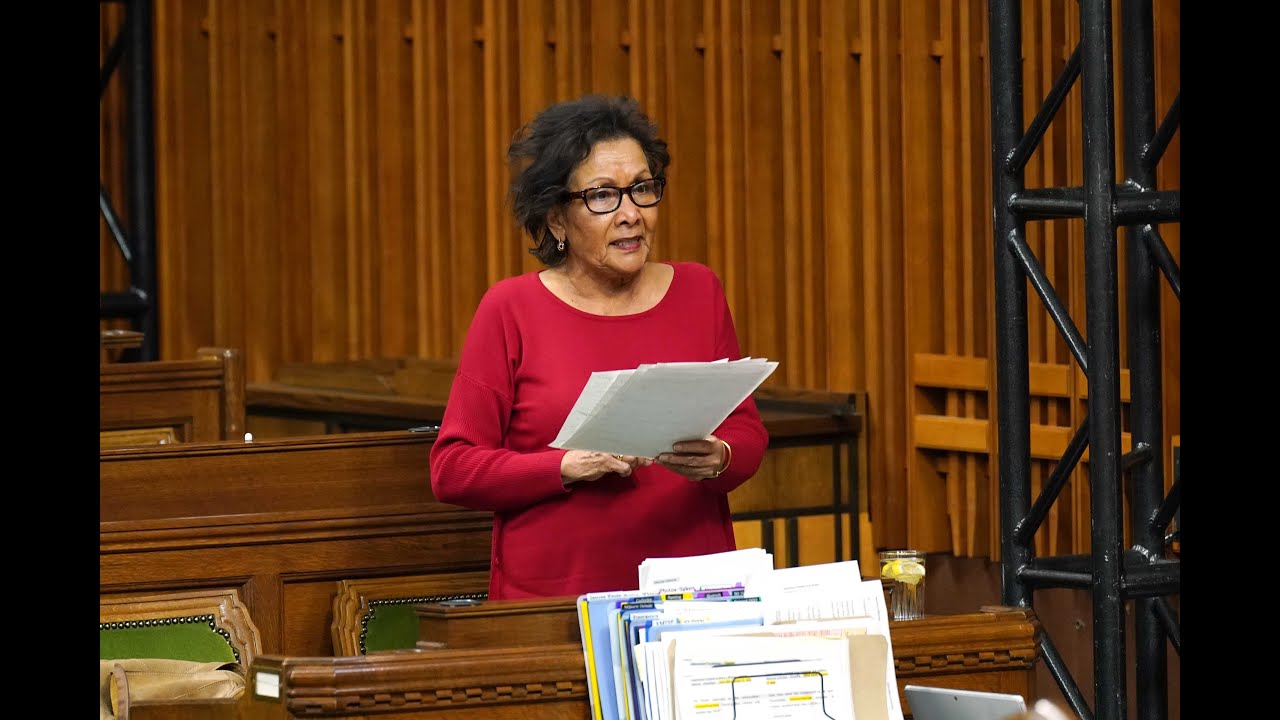Dr. Fry puts forward the evidence based facts to refute the #CPC disinformation. She uses BC as the model recognised by the World Bank, UN & OECD as the gold standard.
Transcript
Hon. Hedy Fry (Vancouver Centre, Lib.):
Madam Speaker, I will be sharing my time with the member for Vaughan—Woodbridge.
I am standing here to speak against this motion. It is a motion that is so based on ideology. It would do great harm to Canadians. A carbon tax is regarded by a majority of economists and policy researchers to be the most simple and powerful tool to limit carbon dioxide emissions. It is based on a premise that the polluter pays, which is the basis for most of our just systems, that people who do harm pay for that harm. It taxes polluters.
A price on pollution is not a new idea. Norway initiated a carbon tax in 1991, taxing 80% of all its fuel emissions. In fact, since then, its fuel consumption and greenhouse gases emissions have gone down by 25%. Sweden and other Scandinavian countries did this in 1997. In 1991, Sweden brought in a $177 Canadian per tonne carbon tax. That is six times what we pay now in Canada. Other countries like Denmark and Finland all initiated carbon taxes in 1991. Their greenhouse gas emissions have fallen considerably and their economies and jobs have improved and increased.
I do not want to just talk about other countries globally. I want to talk about our own backyard. I want to talk about my province of British Columbia and the fact the it initiated a carbon tax in 2007. Since then, greenhouse gas emissions have gone down by 15%, and it has not harmed the economy. In fact, the British Columbia economy is one of the most vibrant in all of Canada. After seven years of having a carbon tax, B.C.’s GDP increased by 12.4%.
During the 2008 recession, when the Conservatives were in government, B.C. outperformed the Canadian average, increasing its GDP by 12.4%. In fact, it is now one of the lowest GHG emitters in Canada. It is now thriving in its economy and moving upward.
It has created 123,000 new jobs in the green tech sector. Those jobs are paying an average of $90,000 per capita. That is pretty good money. It is attracting a lot of young people to British Columbia to work in green tech. At the moment, it has attracted 300 new companies from around the world to invest in British Columbia. Why? Because of the premise of a carbon tax, which is a federal premise that is revenue-neutral that goes back in rebates. The rebates and the revenue neutrality has given British Columbia the ability to lower taxes on some economies and industries; the ability to lower personal income taxes; and the ability to pass on money to low and middle-income Canadians, who get back more money than they pay in their fuel consumption tax.
What it is finding is that because of a low commercial and personal income taxes, 300 companies have invested in British Columbia.
British Columbia has also invested in green technology, which is what the federal government is doing as well, which has created new, well-paying jobs. Lower and middle-income people, farmers and businesses benefit from that low tax rate and from rebates. They help families, businesses and farmers.
I know that the World Bank and the United Nations have cited British Columbia as having the best tax in the world and is a model to follow. However, I know that party does not think well of the World Bank and would like to leave the United Nations. I hear that this is one of its plans. Therefore, I am going to cite somebody else whom the Conservatives might find more credible, which is the OECD. It says that the B.C. carbon tax is a “textbook” example of how to get it right.
Let us balance that with what the tax is doing, how it is helping people and what it has done to reduce greenhouse gas emissions with what the Senate committee said in its report called “Treading Water: The impact of and response to the 2021 British Columbia floods”.
What is the cost of doing nothing? What is the cost of climate change to us? Apparently, climate-change damage cost every Canadian $700 each year because of the money spent to remediate the problems we had with the fires and floods. In fact, we have had wildfires now for six years in British Columbia and two of those wildfires cost $720 million in insured losses last year, making it the most costly insured extreme-weather event the province has ever seen.
Over the past 50 years, the costs of storms, floods and wildfires in Canada have risen from tens of millions of dollars to billions of dollars annually. Who pays that? Who helps out? It is the federal government. Therefore, that is costing us money. It is billions of dollars. In fact, in 2019 and 2010, the insured losses for catastrophic events were over $18 billion. With respect to the health costs, in Ontario alone, the health costs were shown to be $770 million last year because of the fires in Ontario.
In British Columbia, when the floods occurred, the farmers, whom the Conservative Party says it cares about, lost millions and millions of dollars in farmland and in livestock, and the government had to help them. Both the B.C. and federal governments had to put money in to help these farmers out of their problems. A thousand farms in British Columbia were impacted in the floods last year, 15,000 hectares of land and $2.5 million in livestock in one flood.
The Province of B.C. is still trying to calculate the loss of tourism due to the fires. I am not hearing anything from the Conservatives about what they would do about the extreme costs that governments have to bear and all the problems we face when we do this.
Professor Tombe, an economist and public policy professor at the University of Calgary, said that if we were to axe the tax, as we have been hearing repeatedly from those people, it would benefit the highest-income bracket in Canada and be hardest on a “large fraction of low- and middle-income” families, and businesses.
I want to end by quoting Mark Twain. He said, “Never let the [facts stand] in the way of a good story” or, in this case, a good bumper sticker. Let us talk about facts, and I brought facts to the table. Let us do away with the ideology, really do the math and clearly see that B.C. is the best example in the world as to what a carbon tax can do.





